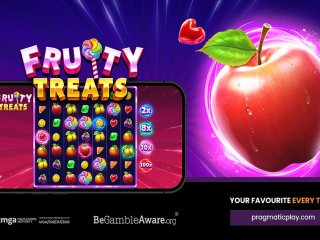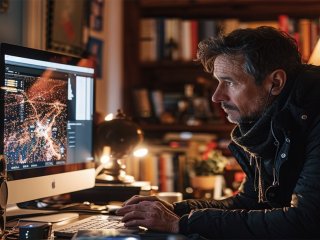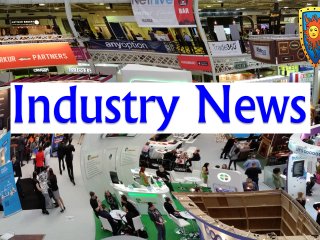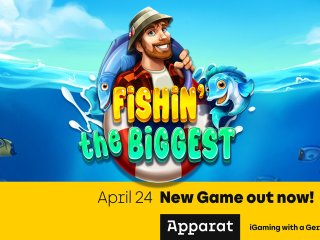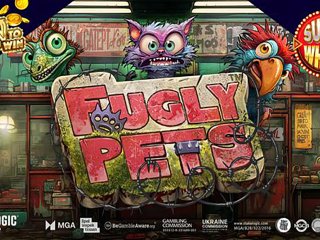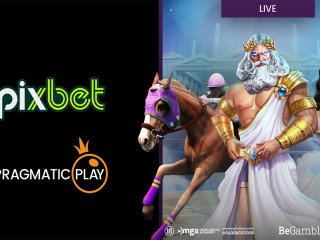Belgian Gambling Commission Review
By Alex Smith Apr 10, 2024
Casinomeister's Verdict

The official online gambling regulator of online gambling in Belgium.
 Pros
Pros
License validation portal
Real-time list of ‘fake’ casinos
 Cons
Cons
The Belgian Gambling Commission was set up back in May, 1999 – also known as the GC – and was established to become the official online gambling regulator, tasked with ensuring all online gambling in Belgium is legal and that players are protected. The Belgian Gambling Commission has three core aims to carry out their aims, which are:
- provides advice to the Government and Parliament on all matters related to games of chance and the protection of players;
- grants the licenses necessary for the operation of games of chance and betting and ensures proactive management;
- has a monitoring function with regard to compliance with the provisions of the Gambling Act and has the power to impose sanctions (warning, suspension or license revocation), including administrative fines.
The Belgian Gambling Commission is an independent online gaming regulator and it is chaired by a sitting magistrate. Mrs. Magali Clavie has been that magistrate since 2020.
About The Belgian Gambling Commission
Gambling was, for a long time, illegal in Belgium – and at one point all games of chance were prohibited. However, this ban saw a rising number of illegal gambling operations cropping up – and with illegal gambling and illegal websites offered to so many players – a decision was made to begin legalizing gambling. Today, there’s not a huge amount of land-based casinos in Belgium, but there’s plenty of online casinos that players head to to play their favorite casino games and live casino games. Sports betting is also legal – and the Belgian Gambling Commission regulated both sports betting and casino games.
The Belgian Gambling Commission is able to issue a number of different online gaming licenses, although when it comes to online games in casinos, the site needs to apply for what’s known as an “A+” license.
Provisions of a License
The process of applying for a Belgian Gambling Commission license is long-winded, expensive – and can take a lot of time – and all applications for an online gambling license must be made directly to the Belgian Gambling Commission via mail. In recent years, the Belgian Gambling Commission has started to allow operators to submit applications through online forms. As you can imagine, there’s a large number of requirements that operators must meet in order to be eligible to get a license – and below we’ll take a look at some of these.
Depending on the type of license required, there’s some different steps that gambling establishments need to go through in order to complete the application process – and things get more complicated when you realize that the Belgian Gambling Commission is restricted, by law, to the number of gambling licenses that it can give out. In order to apply for a license, applicants must provide the Belgian Gambling Commission with an overview of their business plan, the type of online gambling services they plan to offer – and all online gambling operators must submit a transparent business plan, too.
All casino gambling sites are also required to pay a security fee to the gaming commission before they are able to receive a license – and while this varies (for example, different gaming machines, table games and the amount of expected gross gaming revenue can affect the amount) it can be as high as $250,000 – along with changes depending on the type of license that an applicant is applying for. In addition to this fee, online casinos are required to pay an annual fee – although again, this fee varies depending on the type of gambling license and a number of other factors, such as the gross gaming revenue. The Belgian Gambling Commission also regulates a number of other factors, which we’ll take a look at below:
Advertising & Marketing
The Law Reviews – a site that follows gambling law, has a great piece on what the Belgian Gambling Commission does in terms of regulating advertising and marketing, as we’ll see below:
“The abovementioned Royal Decree of 25 October 2018 imposes specific advertising rules for online operators. The rules imposed concern the content of advertising, such as the prohibition on misrepresenting gambling as a potential source of income, or the obligation to add the minimum age to play as well as a warning message (such as ‘play with moderation’). It also contains limitations on the amount of publicity, for example, by prohibitions on advertising during live sports broadcasts, 15 minutes before or after children’s programmes, or before 8pm (except in the framework of sports programmes), as well as the general rule that there can be a maximum of one gambling advertisement per commercial break.
A number of operators introduced requests for annulment of the Royal Decree of 25 October 2018. The Council of State in February 2020 partially annulled the Royal Decree on two aspects: (1) the possibility for online operators to offer bonuses has been removed entirely so that bonuses for online gambling and betting are considered illegal; and (2) the differing approach between betting and casino games operators was considered discriminatory so that the (more stringent) rules applicable to online casinos and gaming halls were annulled. Where the latter were previously faced with a quasi-complete prohibition on advertising (only on their own website and through direct marketing), they are now, in principle, subject to the same rules as online betting operators. There are more cases still pending with regard to this Decree.
Separately, the Gaming Commission published an official opinion on the application of the Decree, with a view to offering some guidance on how the rules will be applied in practice.
The abovementioned decree does not apply to lottery products from the National Lottery. The latter, however, has in place a code on ethical advertising and, in any case, must advertise for its activities in a responsible manner and with a certain restraint, taking into account its mission of public service as laid down in the Management Agreement between the National Lottery and the Belgian state. In addition, the National Lottery is subject to separate, even more stringent, regulations that restrict its online business (e.g., player spending limits.)”
Taxation
It is important to note that in Belgium, winnings from lottery games, sports betting, automatic games, gambling machines, land-based gaming halls – provided the games are games of chance – are exempt from taxation. This means that, as a player, you don’t have to worry about paying taxes on your winnings. However, under Belgian law there is a tax on gaming which is levied directly by the regional authorities – although this tax can vary depending on where in the country you’re located and which region the online gambling company is based in.
For example, gaming machines are subject to a special type of gambling tax, and this is delivered in the form of a fixed amount per machine, per year; again, depending on where this machine is located in the country and the type of machine it is, the amount of tax due can vary.
To some controversy, the National Lottery operator does not have to pay any gambling taxes, even on its sports betting activities – although it should be noted that they are obligated to pay what’s known as a monopoly rent on all of the public lottery activities that it carries out. In 2016, the Belgian government imposed VAT on online gambling on all forms of gambling bar lottery games – and this led to many online gambling companies actually dropping out of the Belgian market, as it simply wasn’t profitable anymore.
Remote Gambling
Like many European countries (even though the EU is trying to change this), in Belgium it is illegal for online gambling operators to offer any type of lottery games; this is because all lotto games fall under the monopoly of the National Lottery. When it comes to other forms of remote gaming, games of chance are allowed, provided that they hold the relevant licenses and have been audited by an approved testing house.
From The Law Reviews:
“Online licenses only authorize operators to provide via information society means games of the same nature as the games they are allowed to offer based on their land-based licenses. The ‘plus licenses’ have the same duration as their related land-based licenses.
In addition, Article 43/8 of the Act requires that the servers on which the gambling products are managed are located in a permanent establishment in Belgium. This rule is applied in conformity with EU case law and in practice it is therefore only required that certain data is stored on the Belgian server (for control purposes) and that the gaming website can be taken offline through the Belgian server (for sanctioning purposes).
As mentioned, the Royal Decree of 28 October 2018 regarding conditions for the operation of gambling and betting through information society introduced additional restrictions on remote gambling and advertising. Notably, it imposes a standard expenditure limit of €500 per week per player (aggregated over all operators). However, the limit may (in theory)27 be raised on specific request of the player, which must be approved by the Gaming Commission before it can be implemented by the operator. This will be refused for players that are listed as having difficulties in paying their debts.
This decree also cracks down on internet payment solutions which allow the funding of a player’s e-wallet with a credit card. This was considered a circumvention of the prohibition on using credit cards (directly) for online gambling.”
Firm Action On Rule-Breakers
One of the reasons why the Belgian Gambling Commission is such a respected name in the online gambling world is the fact that they are unafraid to take action against gaming establishments who are found to be in breach of the rules and regulations set out. This goes both for online casinos, and those who produce and develop online casino games. For example, any licensee who breaks any of the terms and conditions attached to their license can be subjected to fines, sanctions – complete withdrawal of their license – and, in severe cases, even criminal prosecution.
The criminal law and power behind the Belgian Gambling Commission is what makes them such a respected name in the online gambling world; for example, thanks to the administrative law and criminal fines that the Belgian Gambling Commission can hand out, operators really have no choice but to follow the rules – and this is a stark contrast to what we see from other online gambling regulators like Curacao, who’re happy to let their licensees use fake online casino games.
For example, here’s an extract from the Criminal Code surrounding the National Lottery: “Individuals or directors of companies found guilty of organizing illegal lotteries may be sentenced to between eight days’ and three months’ imprisonment plus a fine of between €400 and €24,000. Any remaining prize money, facilities and materials linked to the illegal lottery game are forfeited to the state. If any real estate property was offered as a prize, it will be seized by the state and the operator will be fined between €800 and €80,000. The distributors, promoters and any person who placed advertisements in any form and by any means whatsoever, may be fined between €400 and €24,000 or sentenced to between eight days’ and one month’s imprisonment. All remaining lottery tickets would also be seized and destroyed.”
Access Ban Technology
The Belgian Gambling Commission, like the UKGC and other leading online gambling regulators have developed technology that allows players who feel as though their levels of gambling is getting out of control to completely exclude themselves from all forms of gambling – and the Belgian Gaming Commission calls their program ‘Access Ban’.
This Access Ban program has been around since 2004, and the Belgian Gaming Commission manages what is known as the Excluded Persons Information System (EPIS) which is a digital system that lists all excluded players in a database. Whenever a player enters a land-based casino, a bingo hall, or signs up to an online casino, the site or gambling establishment must cross-reference the gambler’s name against this list – and if they are found to be on it they will not be permitted to gamble or sign-up for an account.
It works in pretty much the same way as the UKGC’s GAMSTOP. Here’s what the Belgian Gaming Commission has to say about it:
“When entering a physical or virtual casino or slot machine arcade, or a virtual betting shop, the player’s surname, first name and date of birth are compulsorily recorded in EPIS, in order to check whether the player can be allowed to play. This is clearly a highly effective tool in the fight against gambling addiction.
- Players can have themselves placed in EPIS if they wish to be protected from themselves;
- An interested third party (e.g. partner) can submit a request for exclusion;
- An exclusion can be imposed on the basis of a court decision (e.g. persons for whom the request for collective debt settlement was declared admissible);
- Due to the nature of their profession, people can automatically be refused entry to a casino or slot machine arcade, for example magistrates, notaries, court bailiffs and police officers.
- A provisional administrator can submit an application by ordinary letter to maintain a preventive ban on gambling for a person to be protected, if they deem it necessary (cf. Article 54 §3.3 of the Gambling Act).”
While, like the UKGC’s GAMSTOP initiative, the Belgian Gaming Commission has received praise, there’s one clause that has caused concern – and that is the fact that you’re able to submit a request for your partner to be self-excluded. This is a controversial decision, for sure – although, at the time of writing, all betting shops and online casinos – including even virtual sports events and gaming arcades, and, of course, land-based casinos – are required to use the Access Ban list to verify that a player isn’t banned before permitting them entry.
Disputes and Player Complaints
While the Belgian Gaming Commission doesn’t appear to provide much in the way of help for players who run into problems at online casinos (they require you to take the issue up with an independent third-party instead), they are very vocal on their commitment towards taking action against those who’re breaching the terms and conditions of their license – and in 2020, a report was released that revealed that the Belgian Gaming Commission had issued a total of 55 sanctions for 23 cases.
The Belgian Gaming Commission, in a statement, revealed that it began the year with a backlog of over 100 different cases – although 67 of these were not followed up upon. The regulator did issue a total of 55 sanctions relating to 23 different cases, issuing fines totalling €59,958. The regulator also revealed that the total number of active licensees in the country at the end of 2020 was 15,997, up from 15,607 in 2019.
There’s some other interesting facts that came out of the report, too; for example, in 2020 a total of 4,549 players entered into a self-exclusion agreement, and 72 players were entered into a self-exclusion agreement by their partners.
Responsible Gambling Measures
In 2020, the Belgian Gaming Commission followed the likes of other online gambling regulators by starting to look at mandatory maximum weekly deposit limits for players – and in April of the same year, the Belgian Gaming Commission passed a new rule that limits the amount of money that players can deposit each week to $500. This was quite a significant move by the Belgian Gaming Commission, as they were the first online gambling regulator to set a monetary cap on the amount of money that could be deposited. Other online gambling regulators like the UKGC, for example, were a bit more loose with their wording, making operators perform affordability checks instead.
However, it is worth pointing out that players are able to request to have their limits increased; in order for this to happen, players must manually request at each online casino they play at to raise their limit. Players can also reduce their limit to any amount – although if they then wish to increase it again, they’ll have to wait three days before the limit is changed.
These mandatory deposit limits were introduced by a Royal Decree passed in October 2018, and were originally scheduled to enter into force early in 2019.
Anti-Poker?
The Belgian Gambling Commission has been accused of being a bit heavy-handed when it comes to poker – and that is because they released the following statement on their website:
“When you play for money, poker becomes a game of chance because the cards are dealt at random (the 5 elements of game, stake, possible win, possible loss and chance are present).
In Belgium, it is prohibited to operate games of chance if you do not have the required license from the Gaming Commission (GC). This is based on Article 4(1) of the Gambling Act.
Article 3(1) of the Gambling Act defines certain activities which, under certain conditions, are not games of chance. These are card or party games which are played outside gambling establishments class I (casinos) and class II (slot machine halls), with the exception of card or party games which are played in gambling establishments class III (cafés), using a device which requires only a very limited stake and which can only provide the player with a material advantage of limited value.
The other conditions must still be determined by royal decree. The Gambling Act grants this power only to the King. The GC does not have the power to determine these conditions itself. Therefore, the GC cannot offer any advice in response to your question. The only thing we can recommend is not to organize an activity if you are in doubt about its legality.”
The Belgian Gambling Commission received criticism for this – and it is not hard to see why. While we understand that gambling laws have to be respected, and, technically, you do need a gambling license to play poker for real money – the fact that they went out of their way to post this on their website is heavy-handed, we feel, and we wouldn’t be surprised if this rule is changed by Royal Decree in the future.
Pros and Cons
One of the major upsides of the Belgian Gambling Commission is their license validation portal. When you play at a casino that is licensed by the Belgian Gaming Commission you can simply click the license seal in the casino’s footer section to be taken directly to the Belgian Gaming Commission’s website where you can independently verify the validity of the license.
We also like how the Belgian Gaming Commission publishes a real-time list of ‘fake’ casinos. These are sites that claim to hold a valid online gambling license from the Belgian Gaming Commission but, in reality, don’t. If you’re ever in doubt about whether or not a site is legit, be sure to check this list out.
FAQs
Has the Belgian Gaming Commission imposed a weekly deposit limit for players?
Yes; in a rather controversial move, the Belgian Gaming Commission recently required online casinos and online gambling websites to impose a maximum weekly deposit limit of 500EUR for all players. This means that once you’ve deposited 500 EUR you will not be able to deposit any additional funds.
However, it should be noted that players are able to apply for an increase in their deposit limit. This request must be made at all gaming establishments that you play at, and it is up to the gaming establishments to decide on a case-by-case basis whether or not they’ll grant your request.
it is highly likely that they will require you to provide proof that you’re able to afford to deposit more than 500EUR per week. For example, the online gaming sites may require you to provide proof of your income – to make sure you really can afford to deposit the money you’re requesting. As mentioned, you have to request to increase your limit at all gaming establishments you want to increase the limit at; it is not a centralized system.
Is it illegal to play at an online casino not licensed in Belgium?
Yes, it is illegal to play at a casino that is not licensed by the Belgian Gaming Commission if you live in Belgium. The Belgian Gaming Commission is one of the only online gambling regulators in the world to impose this rule, and it has come under substantial criticism. Here’s what they say about it:
“In the event of complaints about illegal sites (e.g. if your winnings are not paid out), the Gaming Commission (GC) cannot do anything, except add the site in question to the list of illegal gambling sites. Complaints about illegal gambling sites are not investigated, but an official report is drawn up to be included on this list.
And that is not the end of the story… Gambling on an illegal gambling site is even punishable by law! Players can be fined between €26 and €25,000 (multiplied by a multiplication factor) if they knowingly played on an illegal gambling site. For organizers, these fines are set at between €100 and €100,000 (multiplied by a multiplication factor).”
What is the Access Ban program?
The Access Ban program is a self-exclusion scheme that has been developed by the Belgian Gaming Commission and it works in a similar way to what we’ve seen designed by other online gambling regulators like the UKGC. Through the Belgian Gaming Commission’s website you’re able to request to enter into a self-exclusion agreement; once completed you’ll automatically be blocked from playing at all online casinos that hold a license from the Belgian Gaming Commission and you will also no longer be able to enter betting shops, land-based casinos, horse betting shops or any types of gambling establishments.
The scheme is pretty good and it is actually one of the first of its kind – but there is a fairly controversial aspect of it. Under the scheme, you’re able to request to close the account of someone close to you – for example, your partner. This is prohibited in every other country that offers a self-exclusion scheme, and it means that someone can basically request for you to be blocked from playing, and the Belgian Gaming Commission may well grant the request.
Do games of chance need to be licensed?
Yes; all games of chance (games of chance in its literal meaning means a game where there’s no skill element) need to be regulated to ensure that they are truly fair and use an accredited random number generator. In a rather controversial move, the Belgian Gaming Commission has decided to classify poker as games of chance – and this means that you’re not technically even allowed to hold a small home game (using real money) with friends and family.
Online gaming and online games (both poker and casino table games of chance) also need to be approved, and this process needs to be completed by an independent third-party testing house that the Belgian Gaming Commission has pre-approved. In short, if games of chance haven’t been certified (and virtually all online games of chance are the ones you’ll find in online casinos) then they cannot legally be offered at online casinos.
How can I find out which online gambling sites are licensed by the Belgian Gaming Commission?
As mentioned earlier, the Belgian Gaming Commission has made it very clear that playing at a casino that is not on their approved list is actually a criminal offense. Thankfully, they provide a complete list of all of the casinos that do hold a gambling license from the Belgian Gaming Commission – and they also have a list of ‘illegal sites’ which are simply those offering online games without a Belgian Gaming Commission license; casinos on this list are not necessarily rogue (there’s some big-name, trustworthy brands on there.) It simply means that they haven’t applied for or received an online gambling license from the Belgian Gaming Commission.
Do I need to pay taxes on my winnings?
No; here’s what the Commission has to say about the matter: “In principle, winnings from participating in games of chance or betting are tax-free. You therefore do not have to pay taxes on the sum you win.
However, this is different if you participate in games of chance professionally, e.g. as a professional poker player. In such cases, the amount won must be regarded as professional income, which must be duly reported to the FPS Finance.
The Gaming Commission (GC) is not competent for the taxation of games of chance.”
However, as we always recommend, if you’re ever in doubt then we strongly suggest that you contact a trained tax consultant. For example, if you play at a site that is not licensed in the BGC your winnings may be taxable – so it is important that you understand the risk of playing at non-licensed sites.
Are betting shops legal in Belgium?
Yes – although they are not as common as in other countries like the UK. In fact, along with betting shops you’ll also find land-based gaming halls (where you can find everything from video slots, live gaming, arcades, online games and automatic games) and bingo parlors – although the latter tend to be found only in major cities.
As sports betting becomes more popular, there are more betting shops opening up – but, compared to the UK, for example, there’s relatively few. Most punters are now choosing to place wagers online anyway.
Where can I find the best casinos licensed by the Belgian Gaming Commission?
If you’d like to find the best online casinos that hold an online gambling license from the Belgian Gaming Commission then you’ll want to check out the list of online casinos shown here on this page. Not only are all of these casinos fully-licensed (meaning you are legally allowed to play at them), they are also trustworthy, reputable and safe. Head to the top of this page to browse through the different sites available and choose one you like the look of!
Here at Casinomeister we’re mindful of the fact that when you’re depositing your hard-earned money at casinos you want to have complete peace of mind that you’re gambling in a safe and secure environment – and that’s one of the reasons why our team of online gambling experts works 24 hours a day, 7 days a week to research new casinos and monitor those already recommended on our site.
Ideally, you’ll want to choose a casino that’s listed in the “Accredited Casinos” section of our website. These sites have all undergone extensive checks and have been personally vetted by our team of iGaming experts – so they’re all fantastic places to play at if you’re looking to try out a new casino.
 Top 5 casinos
Top 5 casinos 






